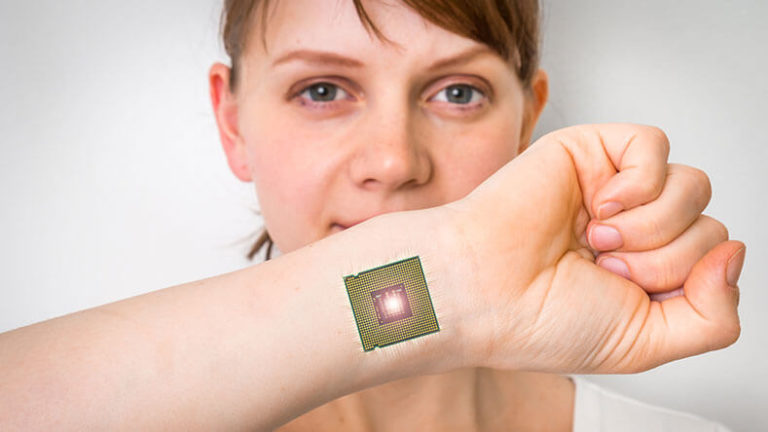Conformable decoding is the harbinger of the era of personalized medicine. Current medical care and monitoring often require extensive, costly instrumentation that is difficult to use, thereby reducing patient compliance, promoting overfitting of temporally fragmented data sets, and limiting the scope of medical exploration. Unintrusive, comfortable, self-powered devices that can be worn for a few weeks will allow researchers to bring their studies out of the lab environment and into people’s homes with continuous monitoring capabilities.
Soft, stretchable, and imperceptible electronics are essential to intimately integrate with human skin and listen to what our body is really telling us. Despite enormous progress in this field, substantial technical challenges remain when transitioning from rigid to soft systems. In addition, visualizing data relevant to clinical conditions is also challenging. By way of this special issue, we would like to encourage our esteemed colleagues to contribute their excellent work in this field to demonstrate its great potential to reshape everyday life moving forward.
Keywords (not limited to):
- Epidermal electronics for healthcare applications
- Bio-integrated/stretchable electronics to decode physiological signals
- Rigid-soft interface for making decoders (sensors) conformable
- New Sensing techniques for soft conformable decoders (sensors/systems)
- Wearable smart textiles
- Wearable physical, electrical and chemical sensing
- Soft actuators for HMI
- Battery-free, wireless non-invasive monitoring of physiological signals
Guest Editor: Canan Dagdeviren, Ph.D., MIT Media Lab
Email: canand@media.mit.edu
Submission Information:
Deadline: May 31, 2024

